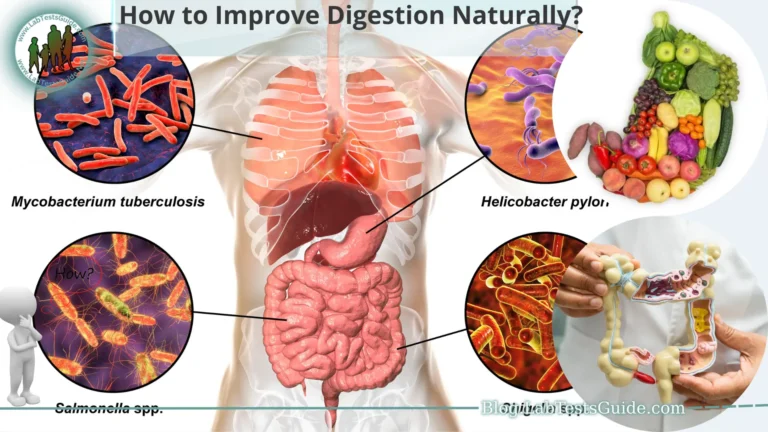The journey of pregnancy brings about numerous changes, including shifts in hormones that can lead to the emergence of acne. This guide aims to provide valuable insights into understanding and managing pregnancy-related acne, offering practical advice on both prevention and treatment to help you navigate this phase with confidence and a healthy, radiant complexion.

What is Pregnancy Acne?
Pregnancy acne, also known as “pregnancy-related acne” or “gestational acne,” refers to the development of acne or breakouts on the skin during pregnancy. It is a common skin condition that can affect pregnant individuals due to hormonal changes that occur during pregnancy.
- Hormonal Fluctuations: Pregnancy triggers significant hormonal changes, particularly an increase in androgen hormones, which can lead to overactive oil glands and subsequent acne development.
- Comedogenic Factors: The excess oil production during pregnancy can combine with dead skin cells and bacteria, clogging pores and causing the characteristic bumps and blemishes of acne.
- Location of Breakouts: Pregnancy acne commonly appears on the face, but can also affect the neck, chest, and back due to the abundance of oil-producing glands in these areas.
- Varied Severity: Pregnancy acne varies widely in severity, from minor breakouts to more extensive and persistent eruptions. Each individual’s experience is unique.
- Timing: Pregnancy acne often occurs during the first and second trimesters when hormonal changes are most pronounced. However, some women may experience it throughout their pregnancy.
- Interplay of Factors: Genetics, existing skincare routine, and overall skin health contribute to the likelihood and severity of pregnancy acne. Those with a history of acne may be more prone.
- Temporary Nature: For many women, pregnancy acne tends to subside after childbirth as hormone levels gradually return to pre-pregnancy levels.
- Emotional Impact: Pregnancy acne can impact self-esteem and body image during an already transformative period. Addressing it sensitively is essential for emotional well-being.
How to Adjust Your Skincare Routine:
- Gentle Cleansing: Opt for a mild, non-abrasive cleanser to cleanse your face twice a day. Avoid over-cleansing, as it can strip the skin of natural oils, causing it to produce even more oil.
- Non-Comedogenic Products: Choose skincare and makeup products labeled as non-comedogenic or oil-free. These won’t clog pores and contribute to acne formation.
- Avoid Harsh Chemicals: Steer clear of harsh exfoliants, astringents, and products containing retinoids or salicylic acid. These may be absorbed into the bloodstream and potentially affect the baby.
- Hydration: Keep your skin hydrated with a pregnancy-safe moisturizer. Well-hydrated skin can be more resilient and less prone to excess oil production.
- Balanced Diet: Consume a balanced diet rich in fruits, vegetables, whole grains, and lean proteins. Omega-3 fatty acids found in fish, flaxseeds, and walnuts can promote skin health.
- Stay Hydrated: Drink plenty of water throughout the day to help maintain skin hydration and overall well-being.
- Stress Management: Practice stress-reduction techniques like meditation, yoga, or deep breathing. High stress levels can exacerbate hormonal imbalances leading to acne.
- Sun Protection: Apply a broad-spectrum, pregnancy-safe sunscreen with at least SPF 30 when going outdoors. Protecting your skin from UV rays prevents further damage.
- Consult a Professional: Before introducing new products or treatments, consult your healthcare provider or dermatologist. They can recommend safe options based on your specific needs.
- Topical Treatments: If approved by your healthcare provider, consider using pregnancy-safe topical treatments like glycolic acid or natural remedies like tea tree oil or aloe vera.
- Prescription Medications: For severe cases, your doctor might recommend prescription options like azelaic acid or topical antibiotics. Always follow their guidance closely.
- Professional Procedures: Under medical supervision, procedures like chemical peels or light therapy may be considered for severe acne cases.
Treating Pregnancy Acne:
- Consult a Healthcare Professional: Start by consulting your healthcare provider or dermatologist. They can assess your skin and recommend safe treatment options based on your pregnancy stage and individual needs.
- Topical Treatments: Consider using topical treatments that are generally considered safe during pregnancy, such as glycolic acid or products containing natural ingredients like tea tree oil or aloe vera. Always use these under medical guidance.
- Prescription Medications: For more severe cases, your healthcare provider might prescribe pregnancy-safe medications like azelaic acid, which has both antibacterial and anti-inflammatory properties. Topical antibiotics like clindamycin or erythromycin could also be options.
- Hygiene and Skincare: Maintain a consistent skincare routine involving gentle cleansing and moisturizing. Avoid harsh products that might worsen acne or irritate your skin.
- Professional Procedures: In cases of stubborn pregnancy acne, dermatologist-supervised treatments like chemical peels or light therapy could be considered. These should only be performed under medical guidance.
- Dos and Don’ts: Do stick to your recommended treatments and skincare routine consistently. Don’t use over-the-counter products containing retinoids, salicylic acid, or other potentially harmful ingredients.
- Healthy Lifestyle: Adequate sleep, regular exercise, and a balanced diet contribute to overall skin health. Proper hydration and a diet rich in vitamins and minerals can support skin healing.
- Stress Management: Practice stress-relief techniques to help keep hormone levels balanced and reduce acne flare-ups. Meditation, yoga, and deep breathing can be beneficial.
- Professional Guidance: Regularly update your healthcare provider or dermatologist on your progress. They can modify your treatment plan as needed and address any concerns.
- Patience: Remember that treating pregnancy acne takes time. Hormonal changes persist throughout pregnancy, and results may not be immediate.
- Self-Care: Prioritize self-care and emotional well-being. Pregnancy can be a challenging time, and taking care of your mental health can indirectly impact your skin’s health.
- Safe Makeup Practices: If you choose to wear makeup, opt for non-comedogenic and pregnancy-safe products. Ensure thorough makeup removal before bedtime.
Dos and Don’ts:
Dos:
- Stick to a Gentle Skincare Routine: Cleanse and moisturize your skin using mild, pregnancy-safe products to maintain a healthy skin barrier.
- Use Non-Comedogenic Products: Opt for skincare and makeup products that are labeled as non-comedogenic or oil-free to prevent clogged pores.
- Stay Hydrated: Drink ample water throughout the day to keep your skin well-hydrated and support overall health.
- Maintain a Balanced Diet: Consume a variety of nutrient-rich foods like fruits, vegetables, lean proteins, and whole grains to promote skin health.
- Practice Stress-Relief Techniques: Engage in activities like meditation, yoga, and deep breathing to manage stress, which can influence hormonal balance and acne flare-ups.
- Consult Your Healthcare Provider: Before trying new products or treatments, seek advice from your healthcare provider or dermatologist to ensure safety during pregnancy.
- Protect Your Skin from the Sun: Apply a pregnancy-safe sunscreen with at least SPF 30 when going outdoors to shield your skin from UV rays.
- Prioritize Self-Care: Take time for yourself, engage in activities you enjoy, and connect with loved ones to support emotional well-being.
Don’ts:
- Avoid Harsh Scrubs: Refrain from using abrasive scrubs or exfoliants, as they can irritate the skin and worsen acne.
- Steer Clear of Harsh Chemicals: Avoid skincare products containing retinoids, salicylic acid, and benzoyl peroxide unless approved by your healthcare provider.
- Don’t Over-Cleanse: Washing your face excessively can strip the skin of natural oils, leading to increased oil production and potential breakouts.
- Limit Makeup Usage: If you wear makeup, choose pregnancy-safe products and ensure thorough removal before bedtime to allow your skin to breathe.
- Don’t Stress Unnecessarily: While acne can be frustrating, stress can exacerbate the condition. Focus on positive self-care practices.
- Avoid Picking or Squeezing: Refrain from picking at acne lesions, as it can worsen inflammation and potentially lead to scarring.
- Don’t Self-Prescribe Medications: Avoid using over-the-counter or prescription acne medications without consulting a healthcare professional.
- Skip Unverified Natural Remedies: While some natural remedies may help, consult your healthcare provider before using any unfamiliar substances on your skin.
Lifestyle Adjustments:
- Prioritize Sleep: Aim for adequate and restful sleep. Quality sleep supports hormone balance and helps your skin rejuvenate.
- Regular Exercise: Engage in moderate, pregnancy-safe exercise. Physical activity boosts circulation and can contribute to healthier skin.
- Balanced Diet: Consume a variety of nutrient-rich foods, including fruits, vegetables, whole grains, lean proteins, and healthy fats. Nutrients like vitamins A, C, and E are beneficial for skin health.
- Hydration: Drink plenty of water throughout the day to keep your skin hydrated and help flush out toxins.
- Avoid Trigger Foods: Some individuals find that certain foods, like dairy or high-glycemic index foods, can exacerbate acne. Listen to your body and make dietary adjustments if needed.
- Limit Sugar Intake: Minimize your consumption of sugary foods and beverages, as excess sugar can contribute to inflammation and worsen acne.
- Gentle Hair Care: Use mild and pregnancy-safe hair care products. Avoid allowing hair products to come into contact with your facial skin.
- Stress Management: Practice stress-reduction techniques like meditation, deep breathing, or prenatal yoga. High stress levels can impact hormonal balance and worsen acne.
- Stay Hygienic: Keep your skin clean by washing your face twice a day with a gentle cleanser. Avoid touching your face with unwashed hands.
- Limit Makeup Use: If you choose to wear makeup, opt for pregnancy-safe, non-comedogenic products. Make sure to remove makeup thoroughly before bed.
- Sun Protection: Wear a pregnancy-safe sunscreen with at least SPF 30 when you’re outside. Protecting your skin from UV rays helps prevent further damage.
- Manage Humidity: If your environment is humid, try to keep your skin clean and dry, as excess moisture can contribute to acne formation.
When to Seek Medical Help:
Here’s when to reach out to a healthcare provider or dermatologist.
- Severe Acne: If your acne is severe, widespread, or causing significant discomfort, it’s advisable to consult a healthcare professional. Severe acne can lead to scarring and impact your well-being.
- Persistent Acne: If your acne doesn’t improve with over-the-counter remedies or adjustments to your skincare routine, professional guidance is recommended.
- Exacerbation: If your acne suddenly worsens or becomes more inflamed, consult a healthcare provider. Sudden changes could indicate a need for a modified treatment plan.
- Allergic Reactions: If you experience adverse reactions to skincare products or treatments, such as excessive redness, itching, or swelling, seek medical attention promptly.
- Painful Lesions: If your acne lesions are painful, large, or cystic, a medical evaluation is crucial. Painful acne can indicate deeper inflammation or infection.
- Emotional Impact: If pregnancy acne is negatively impacting your emotional well-being, self-esteem, or mental health, consider discussing your feelings with a healthcare professional.
- New Medications: If you’re considering using new medications or treatments, consult your healthcare provider, especially if you’re unsure about their safety during pregnancy.
- Existing Health Conditions: If you have pre-existing health conditions or are taking medications for other purposes, discuss any potential interactions or contraindications with your healthcare provider.
- Unusual Symptoms: If you notice any unusual symptoms alongside your acne, such as fever, extreme fatigue, or changes in vision, seek medical attention promptly.
- Pregnancy Concerns: If you have concerns about how your acne might be affecting your pregnancy or the safety of treatments, consult both your obstetrician and dermatologist.
FAQs:
Is it common to experience acne during pregnancy?
Yes, many pregnant individuals experience changes in their skin, including acne, due to hormonal fluctuations.
Why does pregnancy acne occur?
Pregnancy acne is mainly caused by increased androgen hormones that stimulate oil gland activity, leading to clogged pores and acne.
Are there specific skincare products safe for pregnancy acne?
Yes, non-comedogenic and pregnancy-safe products are recommended. Consult your healthcare provider for personalized recommendations.
Can I use over-the-counter acne treatments during pregnancy?
It’s best to consult your healthcare provider before using any new treatments, as some ingredients might not be safe for pregnancy.
Are there foods that can worsen pregnancy acne?
Some individuals find that high-glycemic foods and dairy products can exacerbate acne. Adjusting your diet based on your body’s response may help.
Should I avoid makeup completely during pregnancy?
No, you can use pregnancy-safe makeup products. Just ensure thorough removal before bed and choose non-comedogenic options.
Can stress worsen pregnancy acne?
Yes, stress can impact hormonal balance and potentially exacerbate acne. Stress-reduction techniques like meditation and yoga can help.
When should I consider professional treatments for pregnancy acne?
If your acne is severe, persistent, or causing discomfort, consult a healthcare provider or dermatologist for guidance on professional treatments.
Can pregnancy acne cause harm to my baby?
In general, pregnancy acne does not harm the baby. However, some medications and treatments may have risks, so professional guidance is crucial.
Will pregnancy acne go away after childbirth?
For many individuals, pregnancy acne improves after childbirth as hormone levels gradually return to pre-pregnancy levels.
Conclusion:
In conclusion, pregnancy acne is a common and temporary skin concern that arises due to hormonal changes during this transformative phase. While it might be frustrating, it’s essential to approach it with patience and care. By adjusting your skincare routine, making healthy lifestyle choices, and seeking professional guidance when needed, you can effectively manage and even alleviate pregnancy acne’s impact on your skin and emotional well-being. Remember that pregnancy is a dynamic journey, and as you take steps to care for your skin, you’re also nurturing the incredible process of bringing new life into the world. Embrace these changes with confidence and prioritize both your skin’s health and your overall happiness.






